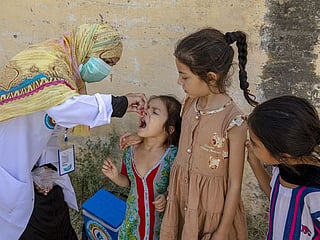COVID-19: Karachi’s hotel industry needs stimulus package
3 out of 7 big hotels in city have closed since late March due to pandemic

Karachi: Not many Karachiites know that the coronavirus emergency has dealt such a serious blow to the hospitality industry of their city that three out of only seven big hotels in Karachi have been completely closed since late March this year, when the Sindh government imposed a lockdown in the province.
The hospitality industry the world over has been the worst affected due to the pandemic but in the case of Karachi the damage is much more severe because in the past the hotel industry never got the chance to flourish despite the massive population and vast area of the city. Karachi’s law and order situation and lack of proper infrastructure are the two important factors in this regard.
The situation has been so dismal that despite being a port city of immense national and international importance, Karachi has not seen development of any big hotel in the downtown area since 1984. This situation has remain unchanged for the hotel industry despite the fact that since 2013, Karachi’s law and order situation has improved remarkably. In these years, at least three big hotels in Karachi closed down while plans to launch new hotels or to expand the existing ones never materialised.
30,000 employees
As the coronavirus health crisis is likely to end soon in Pakistan, Karachi’s hotel industry needs special incentives from the government to restart operations. Karachi’s hotel industry directly employs 30,000 employees and many others as indirect staffers. Businessmen who operate these hotels need special fiscal support from the government to pay their salaries.
“Since the coronavirus emergency, we have not been in survival mode; we have already sunk,” said Zubair Baweja who is the Karachi-based Chairman of Pakistan Hotels’ Association (PHA) during an exclusive conversation with the Gulf News.
He said the biggest success of the Karachi’s hotel industry has been that despite the virtual shut down of their operations for over four months since outbreak of coronavirus, it had retained a vast majority of staffers as the number of lay-offs has remained low.
He said that before the lockdown, Karachi’s hotels had been doing exceptional business with up to 90 per cent occupancy most of the times as a vast majority of these customers were foreigners, mostly Chinese, due to their frequent visits to the country in relation to the under-construction China Pakistan Economic Corridor project.
Minimal occupancy
He said that while three hotels completely closed after the lockdown, the volume of business in the remaining big hotels in Karachi massively reduced with minimal occupancy, no restaurant, meeting, conference, and banquet services due to the restrictions imposed by the government to slow the spread of COVID-19.
Bawaja, who also is the Vice-President of Federation of Pakistan Chambers of Commerce & Industry, said that he was hopeful about the revival of the hotel industry in Karachi with restaurants being allowed to restart their full range of services with offering of the dine-in facility to their customers. He said that with the right incentives and relief offered by the government, the city’s hotel industry had the capability to fully resume business in the next two months.
The PHA chairman said that the three closed hotels of the city would also restart their business quite soon.
He appealed to the Pakistani government that as part of its stimulus package for the hospitality and tourism industry, the turnover tax of the hotels in 2020 and 2021 be waived. Similarly, special relief should be extended to the hotel industry in terms of payment of other government taxes. The hotel industry should also be offered relief in bill payments against the utility services used by the hotels, he said.








